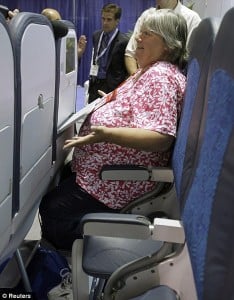As airlines continually try to boost their revenue in this down economy, Southwest Airlines has announced that they plan to raise certain fees for baggage (third bags and overweight ones) and “early-bird” check-in. This is significant because Southwest has always billed itself as the airline without hidden or additional fees – yet now even they see the benefits from charging for add-ons on top of airfare (their AirTran subsidiary is also raising its existing fees for baggage and other items).
More surprising, however, is that they also are planning a “no-show” fee for passengers who fail to cancel a ticket prior to flight time – a first-of-its-kind fee in the industry. This is from an airline where flight costs were fully reusable, with no change or cancellation fees. They say that this will only apply to the lowest fare classes and is only meant to encourage passengers to release space that can then be resold.
Southwest certainly is not the first to charge ancillary fees – most major airlines started doing so in 2008, when American started charging $15 for the first bag checked. Over time, fees jumped higher and broader, to offer things like lounge access, extra legroom, priority security lines and earlier boarding – perks and services previously only available to frequent fliers or via membership. And, lest we think these fees are ridiculous, there are airlines out there that have built their model on selling the extras. Spirit Airlines charged for bags, beverages, and food well before 2008, and currently offers 8 pages of extras on their website; Ryan Air (a European budget airline) not only charges for literally everything, they have removed seatback pockets and window shades and covered headrests and tray tables with advertisements. They have even “joked” that they would charge for the bathroom if they could find a way.
It seems likely that the cost of airfare may soon become just the minimum cost of entry, with airlines barely breaking even (or losing money) on the ticket price itself just to sell all of the upgrades and extras. The true cost of traveling by air may become more like buying a car: sure, you can just pay the base price for a seat, but don’t you want the extra legroom and the rustproofing? A number of articles even discuss airlines installing premium and/or extra-legroom seats in the front to increase revenue, while squeezing smaller seats and reducing seat pitch in regular economy in the back. However, while the airlines have enjoyed the added revenue (indeed, it has kept some of them in business), they have lost big in customer satisfaction. Proponents of the fees claim that it allows travelers more choice in customizing their experience; it also keeps the base ticket price affordable than the ‘true cost’ of a flight.
As a leisure or occasional traveler, how do all the additional fees affect your choices? Do you prefer the choices of the “a la carte” approach, or would you rather pay a higher all-inclusive fare? For the frequent fliers out there, how do you feel about regular fliers being able to purchase the perks that were once only available to the elite?
Southwest Raises Fees, Adds ‘No-Show’ Penalty: http://www.cnbc.com/id/100321169
Add-On Airline Fees: Good or Bad? http://www.cnbc.com/id/47857900
Spirit Airlines defends $100 carry-on bag fee http://www.latimes.com/business/money/la-fi-mo-spirit-airlines-carryon-bag-fee-20121004,0,5442837.story
Like American, More Airlines Add Fees http://www.nytimes.com/2008/06/13/business/13bags.html
Airlines shrink seats http://articles.latimes.com/2012/oct/19/business/la-fi-airline-seats-20121020
